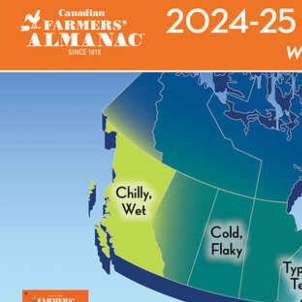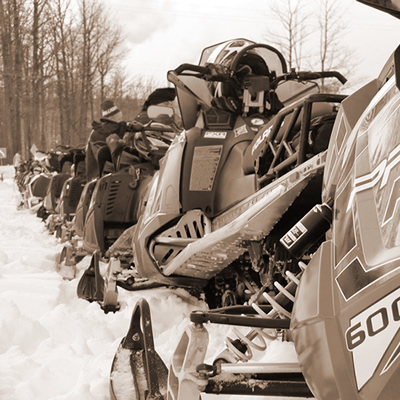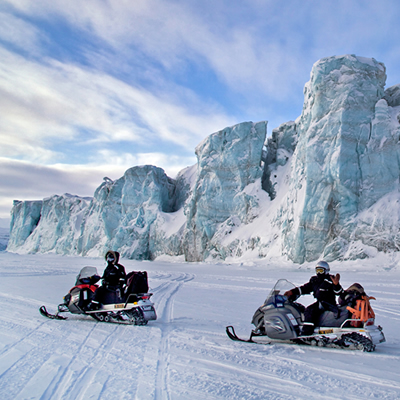Snowmobiling in the stunning mountains of B.C. is one of the most exciting adventures a sledder can hope for. However, it is not without risks. It is important to know the dangers of snowmobiling and how they may be prevented before heading out into the backcountry—and there are many helpful avalanche and snowmobile safety training courses in B.C. that can help you to do just that.
Snowmobile and avalanche safety training
Zacs Tracs Avalanche Training and Trigger Point Avalanche Training are both well-established snowmobile and avalanche safety training providers. Their introductory Avalanche Skills Training program (AST 1) consists of two full days of training in the fields of safety, avalanche identification, companion rescue, gear and more. Current programs are being offered in B.C., Alberta and Saskatchewan from October through March.
After the introductory program, students are encouraged to continue their training for further snowmobile and avalanche safety with other courses, such as the AST 2 and the Companion Rescue Skills, or they may progress to programs such as the ones offered by the Canadian Avalanche Association. AST 1 is a prerequisite for many of the association's safety courses, in particular the Avalanche Operations Level 1 Snowmobile course. This program expands on the knowledge and practices acquired in AST 1 and it is recommended for those seeking employment with avalanche risk management operations.
Going out with a sledding guide can also be incredibly helpful to your snowmobile safety training. Being guided through the trails by trained professionals will give you real-life avalanche and snowmobile safety experience as well as show you how a pro keeps safe on the mountain. Revelstoke is a great place to find such guided tours.
Online safety courses
Avalanche Canada also offers a free online information primer that introduces backcountry sledders, skiers and boarders to the basics of recreational avalanche safety. The course package includes a variety of chapters that cover formation of avalanches, terrain, trip planning, how to reduce risk in the field, rescues and incident reports. One of the most important topics discussed in the course is avalanche terrain recognition, an aspect that the centre deems one of the most important skills for safe backcountry travel.
Specific information about snowmobile safety can be found on the B.C. Ministry of Environment’s snowmobile guide page. Learn about the laws and regulations regarding snowmobiling in B.C., proper conduct and etiquette, snow safety, snowmobile clubs and riding areas.
First aid
First aid is one of the most important skills for a backcountry traveller of any type. There are many opportunities for specific first aid training, such as Sirius Wilderness Medicine, where students can take courses of various levels from introductory first aid to Wilderness First Responder. These courses are specifically designed for individuals who spend time in remote outdoor settings, far from any medical assistance—something that sledders know about all too well. The courses will cover first aid fundamentals, emergency decision making, working with various environmental conditions and other such necessities for emergency medical care.
Sirius will be running several of these courses in November 2013 in Whistler, B.C. Further details and registration information can be found on their course calendar.
Other first aid courses are also available throughout the year all over the country by the Canadian Red Cross. The courses cover a wide range of circumstances including wilderness first aid, emergency child care, CPR and standard first aid. Details for each course can be found in the first aid section of the Canadian Red Cross website.
Read SnoRiders
For more information on snowmobile safety, snowmobile safety training, snowmobile safety courses and avalanche awareness, keep up to date with our SnowTracs column by Lori and Randy Zacaruk.







